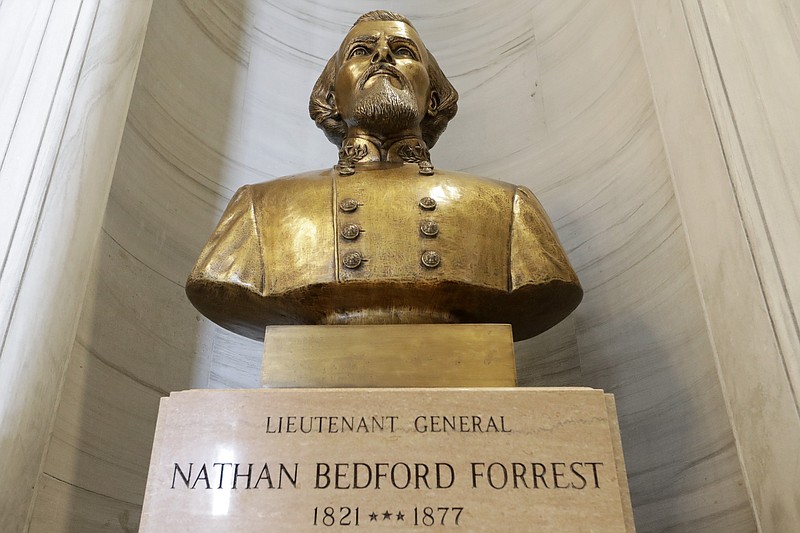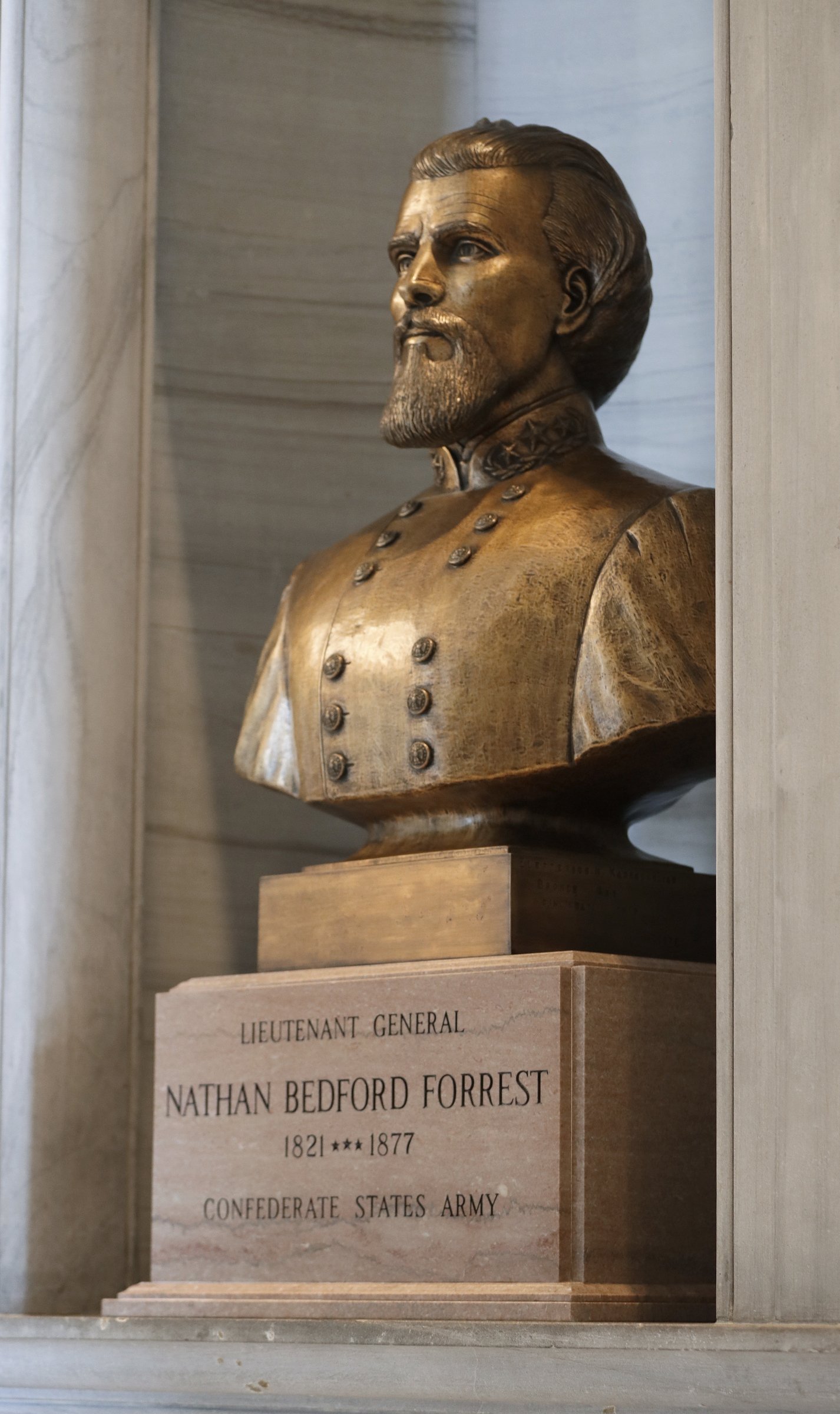NASHVILLE - Most family members of a late Democratic state senator who led the successful effort 42 years ago to place a bust of controversial Confederate Gen. Nathan Bedford Forrest in Tennessee's Capitol agree it's time for the bust to go.
In her letter written to the State Capitol Commission in advance of last week's 9-2 vote to remove the Forrest bust, Kathryn Henry-Choisser, a daughter of the late Sen. Douglas Henry of Nashville, said she and the family debated whether their father would agree the bust should remain given the racial flashpoint it's become in recent years.
"The good that my father did is being overshadowed and slowly erased because this sculpture is allowed to remain in the State Capitol," her July 6 letter reads. "The debate that continues to rage around its tenure serves to ensure that, and therefore it will continue to eat away at my father's legacy until this statue is removed."
At Republican Gov. Bill Lee's urging, State Capitol Commission members decided to remove the bust of Forrest, a cavalry leader whose military tactics are still studied but whose career as a pre-Civil War slave trader and early leader of the Ku Klux Klan have long been controversial.
Forrest's state Capitol bust has been controversial for years but protests over it, sometimes spurring arrests, have accelerated dramatically in recent years. They have taken on new urgency amid the national debate over racial injustice after the May 25 death of George Floyd, a Black man, while in Minneapolis police custody.
The bust's removal is also supported by Brett Forrest, who in an op/ed piece for The Tennessean last month wrote that as a descendant of Forrest "I candidly and wholeheartedly believe all public monuments, statues, busts and holidays in Forrest's name and likeness must be removed." Forrest also wrote that "being related to him is a particular fact that I don't often tell people (for obvious reasons)."
Forrest, among other things, cited his ancestor's role as a Confederate commanding officer at Fort Pillow, Tennessee, where Black troops fighting for the Union were massacred.
Lee's plan calls for the bust to go to the Tennessee State Museum.
The proposal now goes to the Tennessee Historical Commission, which is expected to take up the issue in October. Under a last-minute compromise, the busts of two other Tennessee military figures, Union Admiral David Farragut and U.S. Admiral Albert Gleaves, who served in the Spanish-American War and World War I, also would be moved from the second-floor area between the House and Senate chambers to the museum.
But a 2010 state law appears to open the door for the Republican-led Senate and House, where leaders oppose the bust's removal, to intervene. Efforts during this year's legislative session to move Forrest's bust failed, as they have for years.
Henry-Choisser said the question discussed by her and other family members was "would our father see the continued presence of the bust of Forrest as a benefit to the state of Tennessee? My brother Bob wrote to me, in a manner reminiscent of our late father, that he believes that our father would 'concede posthumously, to its dismissal from the Capitol Building.' We, the undersigned, agree," Henry-Choisser concluded.
Henry, a fiscal, social conservative and history buff who once attended The McCallie School in Chattanooga and whose family founded National Life and Accident Insurance, was 90 when he died in 2017. Henry served in the state House back in the 1950s and later returned as a senator, where for decades he served as the powerful chairman of the Senate Finance Committee when Democrats led the chamber.
Henry advocated for the Forrest bust because the second-floor area between the state House and Senate already had the bust of Admiral Farragut, who fought for the Union during the Civil War. It has been said it was part of a decades-old plan to celebrate naval heroes from Tennessee.
In an interview with the Tennessean, the late senator's son, Douglas Henry, a legal researcher in Nashville and a board member of the Tennessee State Museum, said his father "had always stressed the point he felt there needed to be a balance there between the two sides." His father "was by no means out to advocate the negative aspects" of Forrest's life, Henry said.
The younger Henry also told the Tennessean that while he did not sign the family's letter, he would not oppose the bust's removal to the Tennessee State Museum, citing the Capitol Commission allowing supporters and critics to speak to the panel before voting, adding "I applaud that 100%."
Contact Andy Sher at asher@timesfreepress.com or 615-255-0550. Follow him on Twitter @AndySher1.

